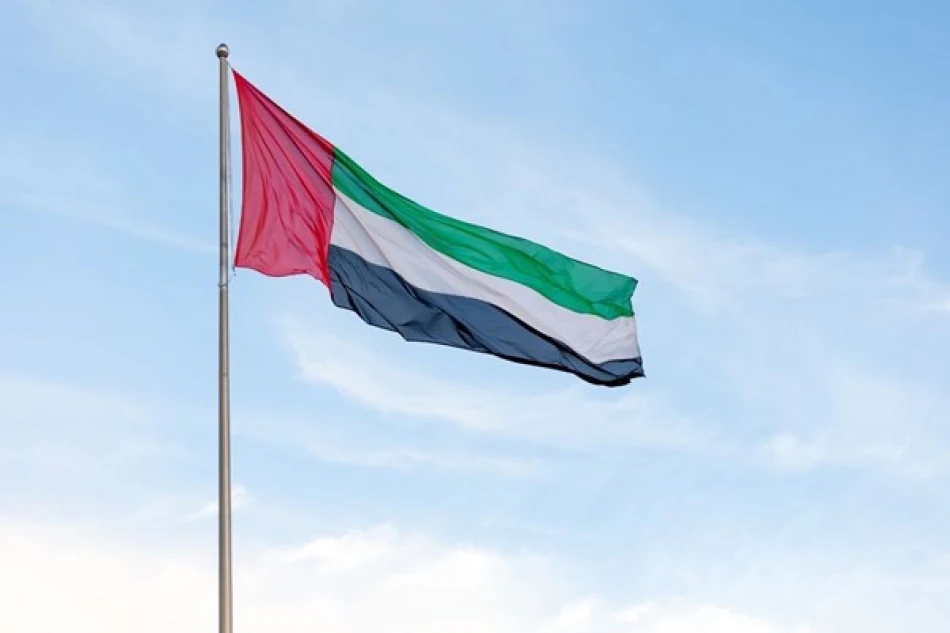
UAE Showcases National Pavilion at Landmark Turkish Defense Industry Exhibition
UAE Flexes Defense Industry Ambitions at Turkey's IDEF 2025 Exhibition
The United Arab Emirates is positioning itself as a regional defense manufacturing powerhouse through its comprehensive national pavilion at Turkey's International Defense Industry Fair (IDEF 2025) in Istanbul this July. The strategic participation underscores the UAE's ambitious plan to transform from a defense importer into a sovereign industrial hub capable of competing with established players like Israel, South Korea, and Turkey itself in the global arms market.
Strategic Timing and National Vision
The UAE's participation in IDEF 2025, scheduled for July 22-27, comes at a pivotal moment for the nation's defense industry transformation. Under the direct supervision of the Defense Enabling Balance Council (TAWAZUN), the national pavilion represents more than mere exhibition space—it signals the UAE's systematic approach to building indigenous defense capabilities that reduce reliance on traditional suppliers like the United States and European nations.
This move aligns with broader Middle Eastern trends toward defense self-sufficiency, mirroring Turkey's own successful transformation from defense importer to exporter over the past two decades. Turkey's defense exports grew from $248 million in 2002 to over $4.4 billion in 2022, providing a roadmap the UAE appears eager to follow.
Industrial Ecosystem on Display
Key Players and Capabilities
The UAE pavilion will showcase the country's most significant defense entities, including EDGE Group, the state-backed defense conglomerate formed in 2019 through the merger of 25 defense companies. EDGE has rapidly emerged as a regional champion, with revenues exceeding $5 billion and operations spanning advanced materials, cyber warfare, and autonomous systems.
CALIDUS, the UAE's military aircraft manufacturer, will also participate alongside Capital Events, which manages the country's flagship IDEX and NAVDEX defense exhibitions. The inclusion of Capital Events signals the UAE's intention to position itself not just as a manufacturer but as a regional hub for defense trade and knowledge exchange.
The TAWAZUN Industrial Park Factor
Perhaps most significantly, the TAWAZUN Industrial Park (TIP) will use IDEF 2025 to unveil its strategic expansion plans. TIP represents the UAE's answer to industrial clusters like Singapore's aerospace hub or Israel's defense technology corridor—a concentrated ecosystem designed to attract international defense manufacturers while fostering local expertise.
The park's emphasis on high-tech manufacturing and foreign investment attraction reflects lessons learned from successful defense industrialization models worldwide. Countries like South Korea and Turkey achieved defense export success by initially partnering with established manufacturers before developing indigenous capabilities.
Market Implications and Investor Perspective
For defense contractors and investors, the UAE's aggressive push represents both opportunity and competition. International companies may find attractive partnership opportunities in a market backed by substantial sovereign wealth and strategic patience. However, established regional players should prepare for intensified competition as UAE companies leverage state support and advanced technology partnerships.
The timing is particularly astute given global defense spending increases following the Ukraine conflict and rising geopolitical tensions. The global defense market, valued at over $2.2 trillion, offers substantial opportunities for new entrants with the right capabilities and backing.
Regional Context and Strategic Calculations
The UAE's defense industrialization push occurs within a complex regional security environment. Neighboring Saudi Arabia has launched similar initiatives through SAMI (Saudi Arabian Military Industries), while Israel continues expanding its defense export portfolio. This creates a competitive dynamic that could accelerate regional defense innovation while potentially disrupting established supplier relationships.
Turkey's selection as the venue for this major UAE defense industry debut carries strategic significance. Despite past diplomatic tensions, both countries share interests in defense technology advancement and reducing dependence on traditional Western suppliers. Turkey's success in developing capabilities in drones, armored vehicles, and naval systems provides a potential collaboration model.
Long-term Strategic Framework
According to Matar Ali Al Romaithi, head of Defense and Security Industry Affairs at TAWAZUN, the IDEF participation aligns with the organization's 2025-2028 strategic plan. This framework emphasizes industrial enablement, advanced technology adoption, and national talent development—elements that successful defense exporters like Sweden and Switzerland have utilized to punch above their weight in global markets.
The plan's focus on international cooperation while building sovereign capabilities reflects sophisticated understanding of modern defense industry dynamics. Pure indigenous development proves prohibitively expensive even for major powers, making strategic partnerships essential for smaller nations seeking defense industrial success.
The UAE's comprehensive approach—combining state backing, industrial infrastructure, international partnerships, and talent development—positions it to potentially replicate the success stories of other mid-sized nations that have become significant defense exporters. Whether this ambition translates into market reality will depend on execution quality and the ability to navigate increasingly complex global defense trade dynamics.
Most Viewed News

 Layla Al Mansoori
Layla Al Mansoori






